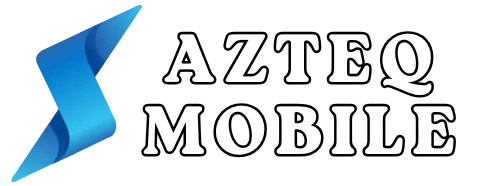Ever wondered what goes on behind the scenes of your favorite digital learning platform? If so, you’re not alone. Educational technology, or Ed Tech, is one of those fields that sounds like it could either be a dream job filled with tech-savvy innovations or a nightmare of jargon and endless troubleshooting. Spoiler alert: it’s more of the former. This article dives into the intriguing realm of Ed Tech, shedding light on what these professionals do, the skills they need, and why they play a pivotal role in the future of learning. So, let’s unravel the mystery, one byte at a time.
Table of Contents
ToggleUnderstanding The Role Of Ed Tech

Educational technology plays a crucial role in modern learning environments. An Ed Tech professional bridges the gap between technology and education, ensuring that innovative tools effectively enhance learning experiences. They aren’t just tech gurus: they also serve as educators, trainers, and sometimes, even motivational speakers. Imagine someone who is not only familiar with the latest classroom software but also understands pedagogy and the unique needs of learners. This dual expertise makes them invaluable.
From implementing new learning management systems to training teachers on how to use educational apps, their role is multifaceted. They can be found in schools, universities, corporate settings, and even non-profits, tailoring tech tools to fit a variety of educational needs. What does this mean in practice? It’s about translating complex tech solutions into practical applications for students and teachers alike.
Key Responsibilities Of An Ed Tech
So, what does an Ed Tech actually do on a day-to-day basis? Here are some key responsibilities that define their roles:
Integrating Technology in the Classroom
One of the primary responsibilities is integrating technology into curriculum plans. This can mean anything from setting up a virtual classroom to choosing and employing digital tools that foster interactive learning.
Training and Supporting Educators
An Ed Tech professional often leads professional development workshops, helping teachers feel more comfortable with and enthusiastic about new technologies. They provide ongoing support, addressing educators’ questions and providing solutions for tech-related issues.
Evaluation and Assessment of Technology
They continually assess the effectiveness of tools in use. This involves gathering feedback from users to understand what works and what doesn’t, ensuring a data-driven approach to technology choices.
Collaborating with Other Departments
Collaboration is key in this role. Ed Tech professionals frequently work alongside curriculum specialists, IT departments, and administration to create a cohesive educational experience.
Skills And Qualifications Required
While passion for learning and teaching is essential, specific skills and qualifications towards becoming an Ed Tech professional can set one apart in this dynamic field.
Technical Skills
A strong understanding of various software programs and platforms is critical. Familiarity with Learning Management Systems (LMS) like Moodle or Canvas, as well as skills in data analysis software, can be a big plus. Beyond that, knowledge of coding can enhance troubleshooting abilities.
Communication Skills
Good communication is fundamental. An Ed Tech must be capable of explaining complex issues in a straightforward manner. They communicate with teachers, administrators, and sometimes students, making it essential to tailor messages according to the audience.
Problem-Solving Abilities
Being tech-savvy isn’t just about knowing how to use tools: it’s about solving tech problems efficiently. Ed Tech professionals need to troubleshoot issues swiftly to minimize disruptions in learning.
Educational Background
Most have backgrounds in education or technology, often holding degrees in instructional technology, education, or information systems. Additional certifications in specific technologies or pedagogical strategies can also be beneficial.
Impact Of Ed Tech On Education
The influence of Ed Tech on education cannot be overstated. It has revolutionized how teaching and learning occur. Here are several ways Ed Tech is making a mark:
Enhanced Accessibility
With the advancement of educational technology, learning resources are more accessible than ever. Students can access materials anytime and anywhere, breaking geographic and time barriers.
Personalized Learning Experiences
Tech tools can analyze student performance and adapt to their individual learning paces. This means tailored learning paths that cater to unique needs, promoting student engagement and success.
Real-Time Feedback
Technology allows for immediate feedback through quizzes and assignments. This instant response helps teachers assess understanding on the fly, making it easier to provide support when students struggle.
Future Trends In Educational Technology
As technology continues to evolve, so will the role of Ed Tech professionals. Here are some trends to keep an eye on:
Artificial Intelligence
AI is beginning to shape education by automating administrative tasks and personalizing learning experiences. The future might see AI tutors assisting students directly.
Virtual and Augmented Reality
VR and AR tools are poised to create immersive learning experiences. Imagine exploring the solar system or ancient civilizations from your classroom. Ed Tech will play a pivotal role in implementing these technologies.
Increased Data Utilization
Data analytics will become even more integral in assessing student performance and learning outcomes. This will help educators make informed decisions and tailor their teaching strategies.
Challenges Faced By Ed Tech Professionals
While the field of Ed Tech is exciting, it is not without its challenges:
Budget Constraints
Many schools struggle with limited budgets, making it difficult to acquire the latest tools and technologies. Ed Tech professionals must find creative solutions within these limitations.
Resistance to Change
Not everyone is eager to embrace new technology. Overcoming resistance among educators and students can be a significant hurdle, requiring patience and ongoing support.
Keeping Up with Rapid Changes
Technology evolves quickly. Ed Tech professionals must continuously update their knowledge and skills to stay current, balancing their everyday responsibilities with ongoing learning.



